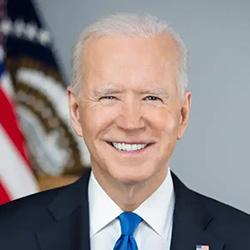

Even as the country works to recover from the COVID-19 public health crisis, the Biden administration is preparing for future pandemics by proposing $88.2 billion for pandemic preparedness in its fiscal year 2023 budget.
“In America and around the world, people want to know: what can we do to stop future pandemics? We must increase and sustain our investments across the U.S. government to better prevent, detect, and respond to pandemics, and to build a world safe and secure from biological threats,” President Biden stated.
The $88.2 billion request for mandatory funding for future pandemics would be available over five years, across the Department of Health and Human Services and its Office of the Assistant Secretary for Preparedness and Response, the Centers for Disease Control and Prevention, the National Institutes of Health, the Food and Drug Administration, the State Department and the U.S. Agency for International Development “to prepare for future biological threats in support of objectives within U.S. national and global biodefense and pandemic preparedness strategies and plans.”
Meanwhile, at a press briefing last week, the administration was still calling for Congress to provide $22.5 billion in emergency funding so the federal government can carry out its plan to continue to fight COVID-19.
“We need Congress to act and provide $22.5 billion in immediate emergency funding so we can execute on the plan, so we can be prepared for whatever comes next,” White House Coronavirus Response Coordinator Jeffrey Zients said at the March 23 briefing, according to a transcript.
The senior living and care industry has been calling on the federal government to up the ante in providing funds to help providers weather the current pandemic.
In a letter to President Biden in advance of the release of the administration’s budget announcement, Argentum President and CEO James Balda cautioned the White House that the “pandemic, much less the crisis stage, is far from over” for the almost 2 million older adults in assisted living, memory care, independent living and continuing care retirement communities.”
The American Health Care Association / National Center for Assisted Living last week asked Health and Human Services Secretary Xavier Becerra to extend the federal public health emergency related to COVID-19, citing the threat of the BA.2 variant and “the unprecedented challenges that the sector has endured as a result of the pandemic.”
LeadingAge President and CEO Katie Smith Sloan last week sent a letter to Senate and House leaders indicating that assisted living and other aging services providers “need additional relief to get through the public health emergency and its lasting aftereffects.”




